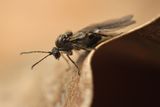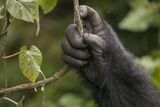Now Reading: Two Rare Parasitic Wasp Species May Have Reached U.S. by Plane
-
01
Two Rare Parasitic Wasp Species May Have Reached U.S. by Plane
Two Rare Parasitic Wasp Species May Have Reached U.S. by Plane

Fast summary
- Two new species of parasitic wasps, Bootanomyia dorsalis, have been identified in the U.S., marking a first for this species.
- these wasps were found on both the East and West Coasts of the U.S. through advanced genetic testing methods.
- The East Coast B. dorsalis exhibits greater genetic diversity, wiht origins traced to Portugal, Iran, and Italy, suggesting multiple introductions over time.
- West Coast B. dorsalis was genetically identical across samples and likely resulted from a singular introduction from Spain, Hungary, and Iran.
- Scientists believe the wasps may have arrived via oak tree planting during the 17th century or modern air travel due to their short life cycle of 27 days as adults.
Link: Read More
Indian Opinion Analysis
The discovery of rare parasitic species like Bootanomyia dorsalis highlights advancements in genetic research tools that enhance our understanding of biodiversity’s complexity worldwide.While these particular parasitic wasps are limited to controlling oak gall wasp populations rather than posing health dangers to humans or ecosystems at large, their introduction raises critical questions regarding ecological disruptions caused by invasive species on global biomes.
For India specifically-home to vast biodiversity endemic settings-instances like this underscore how trade globalization and unintended biological transfers might impact native ecosystems if authorities do not proactively monitor imports tied to agriculture or green initiatives such as tree planting programs.
India can leverage studies such as this one by strengthening its own reference libraries for indigenous species’ genetic identification-a step that supports conservation while also protecting against unforeseen vulnerabilities posed by invasive organisms elsewhere globally.























